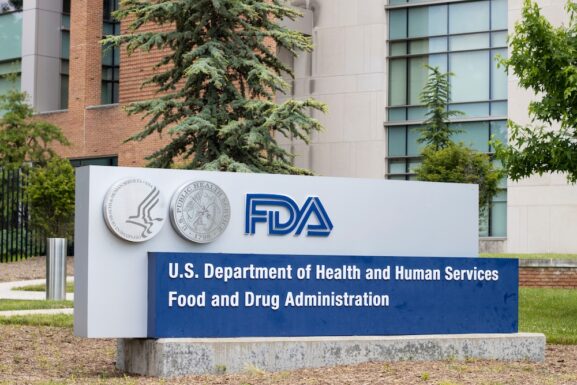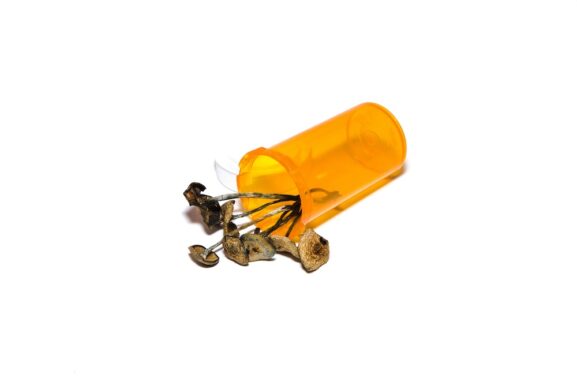Are There Legal Hallucinogens That Provide A Psychedelic Trip?
The word hallucinogens is on everyone’s lips these days — but the question of their legal status still remains unknown. Are there legal hallucinogens that serve as positive mental health treatment and provide a psychedelic trip? We divulge.
RELATED: Can You Smoke Shrooms?
Psilocybin’s A Legal Hallucinogen In Some States
Best known as magic mushrooms (or ‘shrooms), psilocybin is one of the most common hallucinogens today. With a plethora of successful studies and many more underway, psilocybin has proven its incredible effect on those dealing with anxiety, PTSD, eating disorders, and treatment-resistant depression.
This is the main reason why organizations like the Multidisciplinary Association for Psychedelic Studies and John Hopkins Center for Psychedelics and Consciousness have been pursuing ways to conduct more randomized, large-scale trials in order to promote their efficacy.
Its legal status differs on the federal and state levels. Federally, it’s classified as a Schedule I substance under the Controlled Substances Act. This means that it has a “high potential for abuse, no currently accepted medical use in treatment in the United States, and a lack of accepted safety for use under medical supervision.”
Still, that doesn’t prevent the states (or cities, even) to change their view on psilocybin. In 2019, Denver, Colorado became the first city to decriminalize psilocybin, and later in the year, cities of Oakland and Santa Cruz, California followed suit. Washington D.C. did the same in November 2020, followed by Somerville in January 2021 and Cambridge Massachusetts in February 2021.
With powerful properties and therapeutic results, more cities may follow suit by decriminalizing these psychedelics.
RELATED: Legal Psychedelics: The U.S. Cities Where Psilocybin, LSD And Others Are Decriminalized
Ketamine As A Legal Hallucinogen Is Tricky
Mostly known in the medical and veterinarian world as a powerful and potent anesthetic, ketamine is legally classified as a Schedule III substance under the Controlled Substances Act. This means that it currently has accepted medical uses for short-term sedation and anesthesia.
In 2019, the FDA’s approval of a specific type of ketamine — Spravato, a nasal spray — allows for treatment-resistant depression at a doctor’s office or clinic.
On the state level, in addition to the nasal spray treatment, ketamine clinics nationwide also provide ketamine IV infusions. They aren’t regulated or approved by the FDA, but they are also not specifically prohibited — meaning they aren’t deemed illegal.
The biggest risk is with administering ketamine, since there is no proper regulation or approval. With no control over the source of ketamine or the dosage, this may present a danger to patients.
RELATED: What Does An MDMA Hangover Feel Like?
MDMA Therapy Is Gaining Traction
Another interesting hallucinogen, MDMA, also known as ecstasy, has a bit of a party-drug reputation. It is a Schedule I drug under the Controlled Substances Act, but certain organizations like MAPS have received FDA approval to conduct trials. Currently, they are in Phase III trials of MDMA-assisted therapy for PTSD, with an agreement on special protocol assessment.
The goal is to turn MDMA-assisted therapy for PTSD into an FDA-approved prescription treatment. There is an expectation that these trails will be complete in 2022, meaning the FDA could approve the treatment by 2023.
Ibogaine’s Effectiveness Continues To Shine
Another psychedelic classified as a Schedule I substance, ibogaine is also illegal on the federal level. Still, with many studies underway, it’s hard to imagine ibogaine not joining a list of legal hallucinogens at some point.
As a psychedelic that naturally occurs in the West African shrub iboga, ibogaine therapy has shown success for those struggling with addiction. These people often seek international clinics or underground providers to receive ibogaine treatment, since approval in the U.S. has yet to exist.
The Global Ibogaine Therapy Alliance supports the therapeutic uses of iboga through “sustainability initiatives, scientific research, education, and advocacy.” The group could provide a turning point to make this a legal hallucinogen.
RELATED: Why California Wasn’t Ready For The Magic: A Breakdown Of Senate Bill 519
Ayahuasca Is Legal… But With A Caveat
A famous South-American hallucinogenic drink, ayahuasca has many powerful and spiritual characteristics. These make it an important part of almost every shamanic ritual for thousands of years. Its cleansing properties help alleviate bad spirits and toxins — but there are ayahuasca dangers to be familiar with.
Its legal status once again classifies it as a Schedule I controlled substance. This deems it as high risk for abuse, with no current medical use in treatment in the United States. It contains a chemical called N,N- dimethyltryptamine, or DMT, and is therefore illegal to import, possess, sell, distribute, or consume.
A 2006 Supreme Court declaration allows members of a New Mexico church to legally use ayahuasca as a sacramental right. Santo Daime and União do Vegetal (UDV) are Brazilian “ayahuasca churches” with branches in the U.S. Each church use the psychedelic in spiritual sessions.
Some areas in the U.S. — such as Oakland, CA, Washington D.C., Santa Cruz, CA, Denver, CO, and Ann Arbor, MI — have decriminalized psilocybin and other natural psychedelics. This means that both possession and use can no longer lead to jail time. So, in terms of becoming a legal hallucinogen, it’s inching closer.
LSD Has An Uphill Battle
LSD is not a legal hallucinogen, as it falls under Schedule I of the Controlled Substances Act — with no current decriminalization of any sort. Although one of the earliest psychedelics with research, a ban of LSD began in the 1970s. It wasn’t until more recently that new trials and studies began taking place.
Most studies took place in the 1960s. But, more recently, there was the first completed double-blind, placebo-controlled study of the therapeutic use of LSD in human beings in four decades. The trends show positive signs in the reduction of anxiety. This is a great push towards more studies and, potentially, approval in human trials.
RELATED: What Causes Visuals In Psychedelic Trips?
Some Legal Hallucinogens Are Causing A Stir, But It’s A Work In Progress
The interest in psychedelics is growing each day, and, in time, most of them may become decriminalized. But where are psychedelics legal? With a handful of legal hallucinogens already available, interest continues to grow. So these alternative treatments for mental health issues may soon become common practice.



